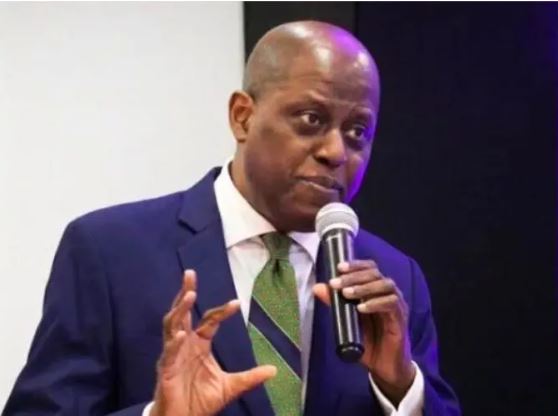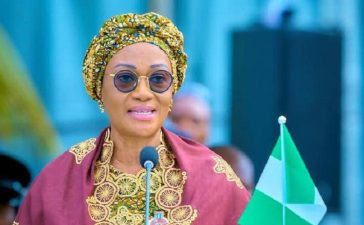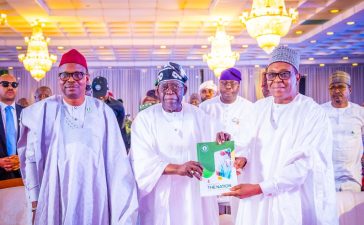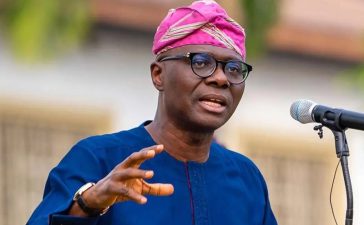Governor of the Central Bank of Nigeria (CBN) Dr. Olayemi Cardoso has reiterated the pivotal role of financial inclusion in driving Nigeria’s economic growth.

Speaking to a diverse audience of policymakers, financial experts, and business leaders, at the National Financial Inclusion Conference held Tuesday, the CBN Governor emphasized that inclusive finance is essential for sustainable national development and for positioning Nigeria as a $1 trillion economy.
“Inclusive finance is not just about enhancing the provision of appropriate financial products and services to unbanked populations; it is an essential fulcrum upon which national economic growth and development can be achieved,” the Governor said, underscoring the critical role that access to financial services plays in reducing poverty, boosting income equality, and promoting job creation.
One of the most pressing challenges facing Nigeria, Africa’s most populous country, is the financial exclusion of nearly one-third of its adult population. According to the 2023 EFInA Access to Finance survey, 26% of Nigerians remain financially excluded, unable to access crucial services such as savings accounts, credit, and insurance. This exclusion traps many Nigerians in cycles of poverty and limits their ability to contribute to the economy.
The Governor further emphasized the role of Micro, Small, and Medium Enterprises (MSMEs) in Nigeria’s economy, noting that these businesses are crucial for job creation and productivity growth. However, many MSMEs struggle to access the credit they need to expand.
“Financial inclusion, he noted, could unlock the full potential of this sector, driving both job creation and economic productivity.
“Widespread access to financial services is an enabler of economic activity,” the CBN Governor stated. “When more people have access to formal financial services, they are better able to save, invest, and contribute to the economy. This participation ensures efficient capital allocation, fosters innovation, and builds a more resilient economy.”
The Governor also drew attention to the critical importance of including Women and Youth in financial systems. Women, in particular, have been disproportionately excluded from formal financial services in Nigeria. However, when empowered financially, they reinvest in their families and communities, yielding broader socio-economic benefits. The CBN has introduced several policies aimed at closing gender gaps and providing regulatory support for digital platforms, which offer more accessible financial services for women and other vulnerable groups.
To facilitate this, the CBN has leveraged technological advancements to expand financial inclusion, including mobile technology and interoperable payment platforms. With Nigeria’s growing mobile phone penetration, digital financial services such as mobile money and agent banking are helping to reach remote areas and underserved populations. The CBN has also raised the minimum capital requirements for banks, enabling them to take on greater risks and extend more credit to underserved markets.
“Financial inclusion unlocks untapped potential, making it a vital instrument for national progress,” the Governor affirmed, praising the technological strides made by both local and international financial inclusion partners.
The CBN Governor concluded by commending the ongoing efforts of Nigeria’s Financial Inclusion Governance Committee, and acknowledging the support of partners and sponsors who made the conference possible. He also emphasized the importance of continued collaboration to achieve the goals of Nigeria’s National Financial Inclusion Strategy (NFIS).
“The journey toward inclusive finance has not been an easy one,” he said, “but through partnerships, dedication, and commitment, we are making significant strides.”
The conference served as a platform for furthering discussions on how Nigeria can continue to break down barriers to financial inclusion, ensure access to affordable financial services, and ultimately achieve sustainable economic growth for all Nigerians.







